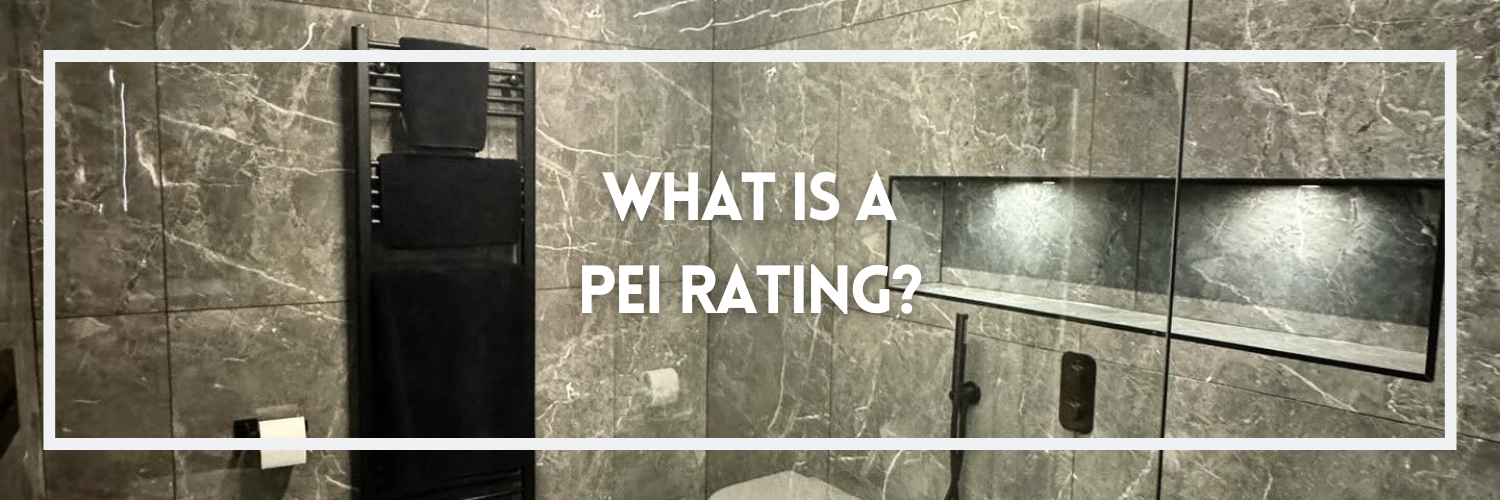You might have encountered a rating known as PEI, which stands for the Porcelain Enamel Institute rating. This rating measures a tile's resistance to wear and tear, determined by a standardised test where machines simulate various levels of foot traffic. The tiles are then rated on a scale from 0 to 5 based on their durability.
-
PEI 0 – Wall Tiles Only:
These tiles are suitable exclusively for walls and should be installed in areas where they will remain dry and undisturbed. -
PEI 1 – Light Foot Traffic:
Suitable for walls, countertops, and floors with minimal foot traffic, like bedrooms or en-suite bathrooms. Soft footwear, such as slippers, is recommended in these areas. -
PEI 2 – Moderate Foot Traffic:
These tiles are appropriate for less busy areas of the home, such as bathrooms. -
PEI 3 – Regular Foot Traffic:
Tiles with this rating can be used throughout the home, including high-traffic areas like hallways, living rooms, and kitchens. -
PEI 4 – Heavy Foot Traffic:
Ideal for both residential use throughout the home and light commercial areas, including offices, bars, or restaurants. -
PEI 5 – Very Heavy Foot Traffic:
These tiles are extremely durable and suitable for high-traffic public spaces, such as airports and shopping centres.
Important Note: The PEI rating assesses a tile's resistance to abrasion, not its thickness. Thicker tiles are not necessarily more durable; always check the PEI rating to ensure the tile meets your needs for wear resistance.

